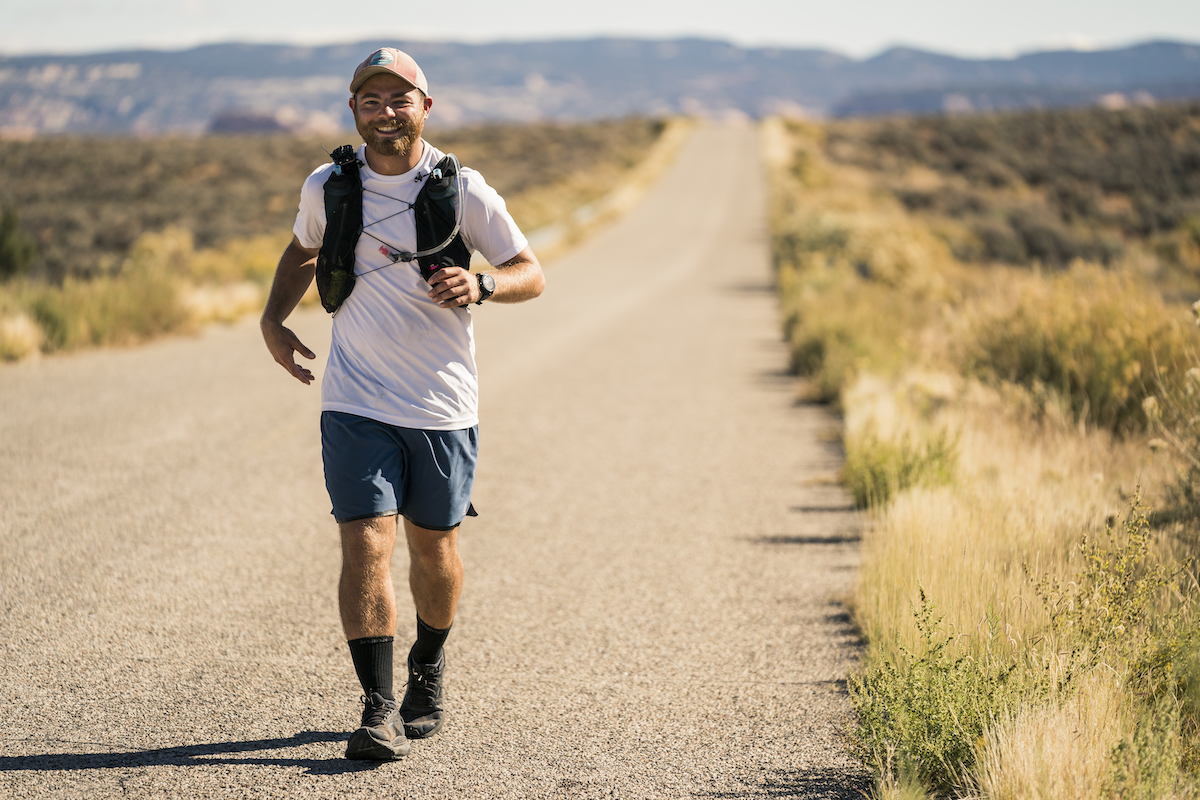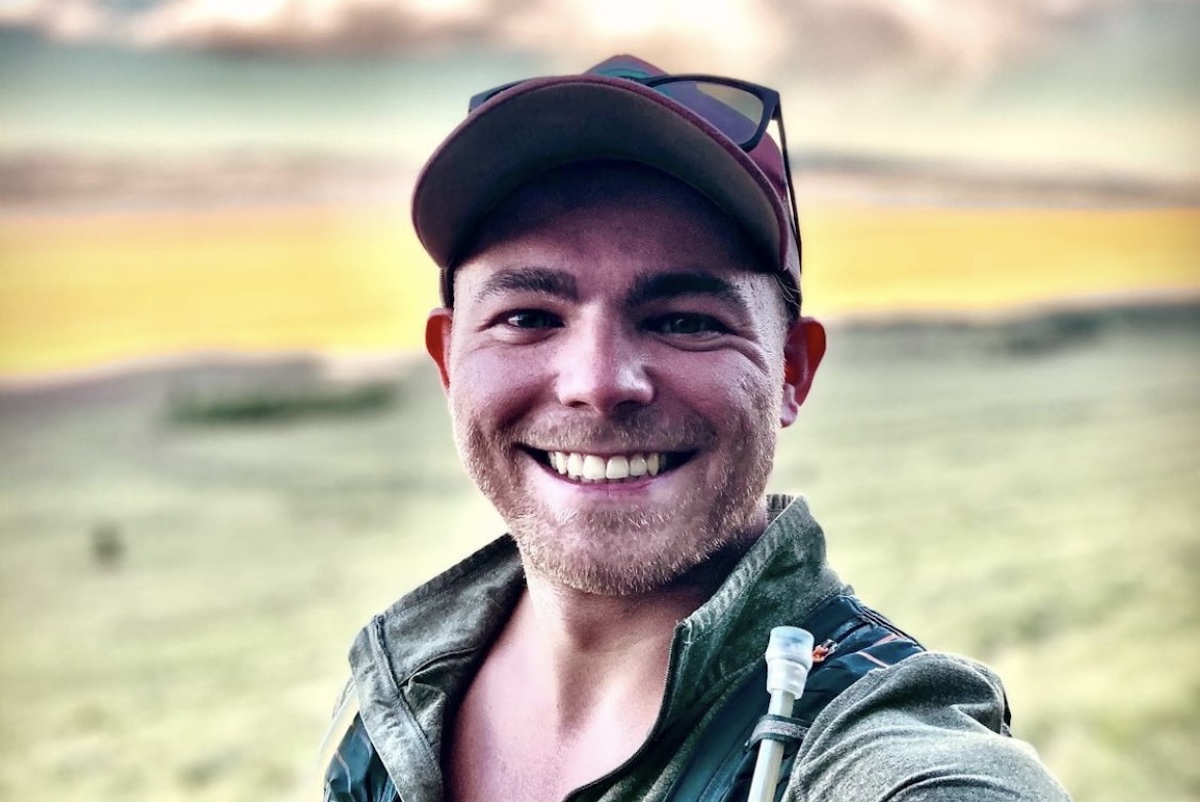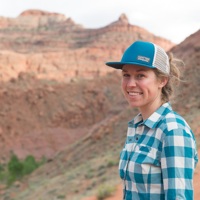Ultrarunner Taylor Newman stood over the grave of his cousin Sam Dukas at Pine Grove Cemetery in Lynn, Massachusetts, with a glimmer of hope alongside deep heartache. He’d been moving for four days. Newman had just run 300 miles to this resting place from his New Jersey home to raise awareness about addiction.
A drug overdose was what took Sam’s life. His addiction was fueled by a desire to feel normal amid life’s turbulence and a lack of balance, shared Newman, and that threat has become more prevalent than ever in the United States.
The highest number of overdose deaths ever recorded in a year-long period took place leading up to May 2020: more than 81,000 fatalities, reports the Centers for Disease Control and Prevention.
Newman is the 26-year-old co-founder and executive director of Move for Mind, a nonprofit that delivers mental health education to youth and community members through a movement-based learning model that focuses on running.
Newman ran across state lines to raise awareness for his nonprofit’s inaugural Addiction Sucks campaign and his organization’s mission. As a result, supporters donated $11,860 to fund the cause. Move for Mind, which launched in April 2020, provides in-person presentations at schools, group support at run meetups, online tools, campaigns, and events that raise awareness.
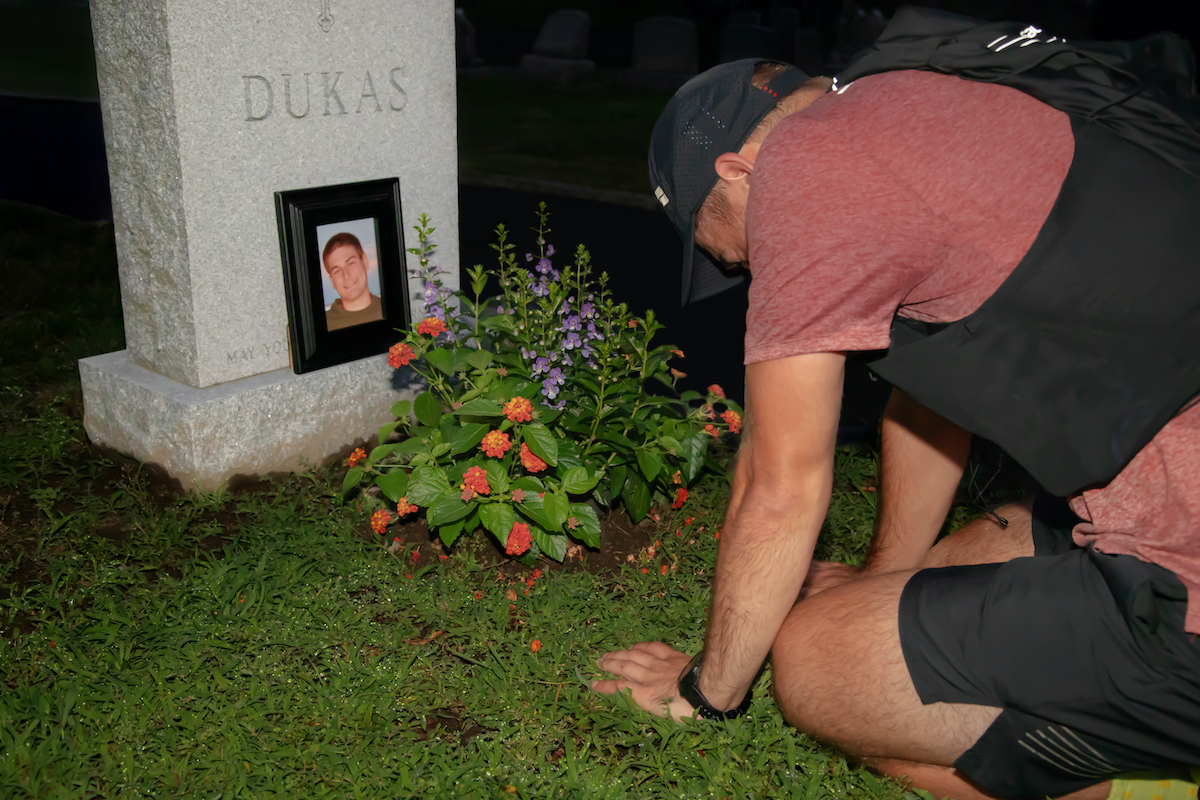
Taylor Newman at the finish of his 300-mile run to the grave of his cousin Sam Dukas in Pine Grove Cemetery in Lynn, Massachusetts. Photo courtesy of Taylor Newman.
“Move for Mind’s mission is to inspire people to use running as a means to improve mental health. We’re a mental health advocacy nonprofit — long story short, running saved my life,” says Newman.
Newman grew up in Lebanon Township, New Jersey, a rural farming community with a population of 5,000. His parents still live in the house where he, his older brother, and younger sister were raised.
He grew up playing soccer, baseball, and competing in high school track. He was on the varsity team as a sprinter in the relay and as an individual. “I was the worst 400-meter hurdler, but I was a good 400-meter runner,” says Newman.
After high school, Newman briefly studied at Ithaca College in New York before he transferred to the Cleveland Institute of Music in Cleveland, Ohio, where he earned a bachelor’s of music in symphony and percussion performance. Today, he’s back to living in New Jersey and working as a performer and educator, which includes teaching marching band at Piscataway Township Schools in New Jersey and performing with artists in New York City.
“I was lucky to study with Jamey Haddad, one of the foremost world music and jazz percussionists in the country. He exposed me to the idea of your own family lineage and history, asking who are you, where do you come from, and what does that mean to you? I went through those same guiding principles and questions when I found ultrarunning,” says Newman, who stopped participating in athletics while he studied music.
That’s when his depression spiraled out of his control. “My depression, which I’ve always had, became unmanageable in college. In 2017, I was really struggling, suicidal, and wanted to end my life. What the running community stands for is strong and can help people improve their minds. Everybody should engage to improve our mental health the same way we engage our physical health,” he says.
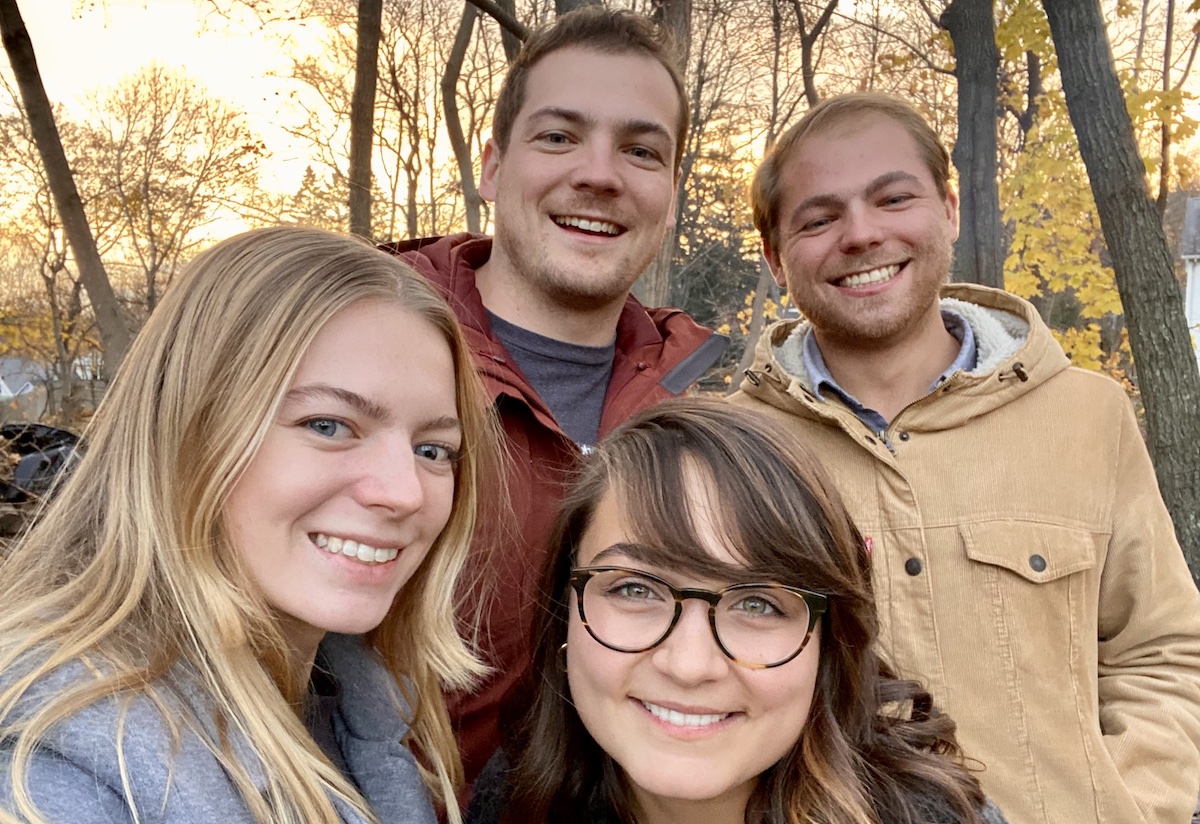
Newman (top right) with his family on Thanksgiving in 2021, with sister Kelsey (bottom left), cousin Madison Dukas (bottom right), and brother Alex (top left). Photo courtesy of Taylor Newman.
Newman found ultrarunning through a podcast interview with Courtney Dauwalter after she ran the Moab 240 Mile. “I didn’t know people could run 100 or 240 miles; I was intrigued. Courtney and other ultrarunners spoke about the mental aspect of the sport, and I knew I had to try this. If I could start with a goal to run 100 miles, I thought it would help,” says Newman. He was right.
For two years, he covered miles around the Cleveland suburbs and Lake Cleveland then completed the 2018 Cleveland Marathon. In January 2019, the same month he started training for his first ultramarathon — the Marin Ultra Challenge 50 Mile in Sausalito, California — Sam passed away, and Newman began to imagine Move for Mind on his training runs.
He reached out to a fellow runner, Emily Hudak, who had expressed that she wanted to organize a 5k race for mental health, to see if they could team up.
“Emily is a clinical mental health counselor and she’s active. She also wanted to get the word out to run or move to improve mental health. After we worked on planning a 5k for a couple of months, we realized we wanted to form a nonprofit,” says Newman.
For 2022, the primary focus of Move for Mind is education outreach at schools. “We developed a curriculum that we can deliver to youth through our outreach. The purpose is to provide information and fill in the gaps of education on mental health that youth in our country do — or most likely, do not — receive. We want to create an open, honest, and comfortable space for them to talk,” explains Newman.
In the first quarter of the year, the program will launch on the ground with partners in New Jersey, California, and Connecticut before expanding to more school districts.
Here’s how the curriculum works: “The curriculum is structured to facilitate conversations and explore mental health. First it asks, ‘What does mental health mean to you?’ Adults might go to clinical terms like depression or anxiety. Kids might think about homework, stress, or going through puberty.
“The next step is to apply mental health inwardly and asking how you cope with those things to understand our emotions. The final step is applying what we learned outwardly to our friends, family, and communities: How do you bring awareness around and talk about mental illness to help others?”
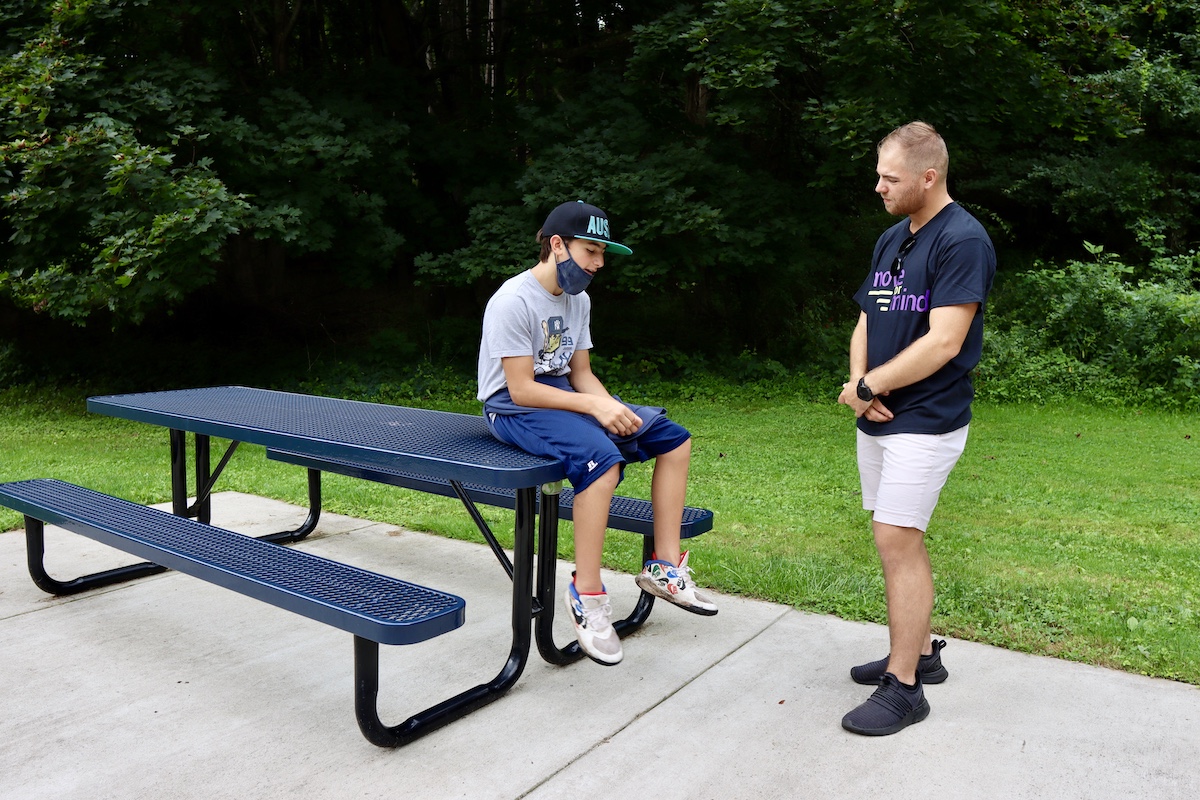
Newman talking with a student of the Genesis Program, an alternative program of the Wilton, Connecticut, school district, one that helps deliver Move for Mind’s programming. Photo: Move for Mind
Schools will be able to choose from several course options including a presentation, a day-long workshop paired with running activities, or a 12-week program. An iteration of the program will eventually be available virtually.
In addition to working with youth, over the next few years Move for Mind aims to organize chapters nationwide to organize group runs that provide nonclinical support and dialogue about mental health.
The organization plans to host another Addiction Sucks campaign, which “sheds light on a huge health problem in our country and fundraises” for the organization, says Newman, who completed the training for certified peer recovery coaching through the Connecticut Community for Addiction Recovery (CCAR) organization. [Author’s Note: Supervised hours are required to secure a state honored credential.]
The nonprofit will also host its first-ever 5k event, which was postponed due to the COVID-19 pandemic. “We’re excited to launch really meaningful, tangible ways to bring our mission to our communities and provide a concrete way for people to set up their own local chapter,” says Newman.
So far, Move for Mind is partnered with the Fleet Feet Burbank running store in Burbank, California, to host meetups. “If people are inspired by the mission and want to support us in any way, connect with us and talk to us,” invites Newman.
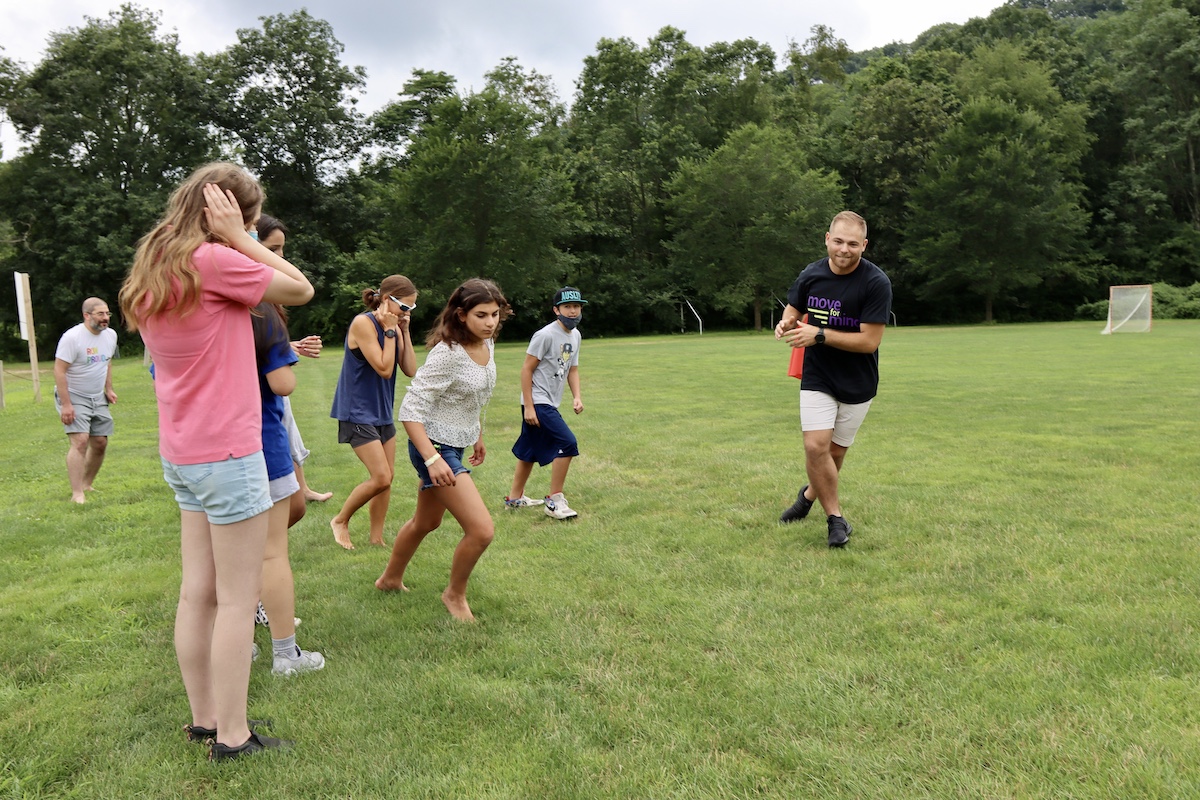
Newman starting a short run with students of the Genesis Program during the activity portion of Move for Mind’s programming. Photo: Move for Mind
Newman has more running goals for next year. too. In 2020, Newman placed second in the Sangre de Cristo Ultras 200 Mile in Westcliffe, Colorado — his first-ever 200-mile race — and crossed the finish line of the Moab 240 Mile in Moab, Utah, in October 2021. For 2022, he plans to tackle a 72-mile fastest known time route along the New Jersey stretch of the Appalachian Trail on September 4, for his birthday.
Newman says, “I want to live a healthy life that’s long and filled with lots of exciting experiences. I started running for personal reasons — it’s literally been life and death. Running tends to be my alone time, and I use running as my place to explore my mind and improve my mental health. Next year, I look forward to smaller races. My biggest run goal is to connect more with the community.”
To get involved, subscribe to the Move for Mind newsletter, follow and tag the organization on Instagram and Facebook, financially contribute, and send an email if you’re interested in a starting a local chapter.
Call for Comments
- Have you overcome addiction with the help of running, or know someone who has?
- How do you engage with your community on these types of difficult topics?
